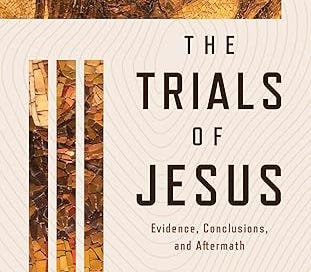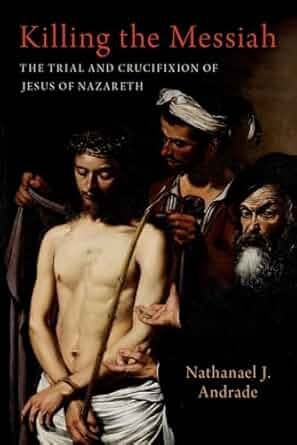Having just finished writing my own book on the historical Jesus, I was able to read two new books about the trial of Jesus that were hot off the press and I had just enough time to reference them before I signed off on corrections to the manuscript.
Killing the Messiah: The Trial and Crucifixion of Jesus of Nazareth
By Nathanael Andrade - Oxford: OUP, 2025.
The New Testament Gospels are unclear about what charges Pontius Pilate judged. They portray Pilate as embracing Jesus' innocence despite having him killed. We are left with more questions than answers. Why did Pontius Pilate condemn a man he believed innocent? What was Jesus' crime? How should we understand Pilate's role in Jesus' execution? Killing the Messiah addresses these questions and analyzes Pilate's path to crucifying Jesus. It determines why and how Pilate deemed Jesus guilty of criminal behavior and the roles played by various people in ensuring Jesus' crucifixion. It also probes how the personal motivations and social obligations of Pilate and other authorities affected how they assessed Jesus' criminality. To do this, it situates Jesus' trial within the geo-political context of the Roman Middle East. In the decades before Jesus' lifetime, and throughout the centuries that followed, Roman courts determined the outcomes of millions of trials throughout the region. Jesus' trial took place in the same basic legal apparatus as all of these. By approaching the arrest, trial, and sentencing of Jesus from the perspective of Roman and legal history, this book sheds fresh light on the most famous conviction in world history.
The Trials of Jesus: Evidence, Conclusions, and Aftermath
By Paul Barnett - Grand Rapids, MI: Eerdmans, 2024.
Paul Barnett sheds light on the story behind the Passion, Resurrection, and the subsequent birth of the church. Barnett fills readers in on the four hundred years of history between Malachi and Matthew, setting the geopolitical stage for the very crux of salvation history. Barnett shows how the Gospels describe a complex chain of events from Jesus’s arrest to his crucifixion—interrogations from multiple high priests, a confrontation with Herod the Tetrarch, and finally Pontius Pilate’s unusual hesitancy leading to Jesus’s execution. The narrative raises several questions: Why was Jesus interrogated so many times? Why was he executed not by the high priests, but by the Romans? What are serious readers of Scripture to make of this narrative, central as it is to the Christian faith? With rich context and expert storytelling, The Trials of Jesus will intrigue and enlighten scholars and everyday Christians alike.
So what do I think? When Pilate cries out in Jesus Christ Superstar, “I need a crime!” what crime did Pilate eventually consider Jesus guilty of? (Watch this video for the scene). Answer in the video below!






I really have enjoyed the discussion. I loved this compelling summary, which has excited me about reading the books.